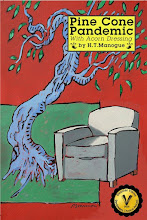Therefore whatever of matter (or body) there is , whether of the past, of the future, or of the present time, whether internal or external, whether coarse or fine, mean or exalted, far or near, all matter (or body) is to be regarded as it really is, in the light of perfect knowledge. One who thus seeing the world turns away from the world is truly freed from evil passions and has the consciousness of freedom. Such is called one who has the obstacles removed, trenches filled, one who has destroyed , is free, one whose fight is over, who has laid down his burden, and is detached.
D.T. Suzuki uses this thought from the Majjhima Nikaya in his 1927 essay, Enlightenment and Ignorance. Perfect knowledge is knowledge in action. The action of the cells is perfect knowledge since the cells function in the past, present, and future, but we only sense the present action in our time sequence. We carry a blueprint of perfect knowledge which is capable of bringing about the most favorable version of a self in the probable system that we understand.
These blueprints exist spiritually, mentally, and physically; they biologically exist at every level of the self, but they also exist apart from it in the place of no place in the complete action called consciousness. The physical self carries information from these blueprints and that information is used to draw the theories, ideas, and technologies we use individually as well as in mass. This blueprint of impulses is perfect, but is never done or finished because there are inherent characteristics of creativity which seek to surpass or expand physically as well as non-physically.
A fragmented self tries to construct these blueprints in the perfect image of perfect knowledge, but the separation from other aspects of the blueprint makes the quest for perfection a relentless effort filled with egotistical expressions.
The inner world of perfect ideas and impulses are rooted in the consciousness of self and are fulfilled through the selective significance of the individual. Accepting our created reality for what it is allows the cells to draw from this perfect knowledge. The God-stuff in us creates the physical stuff which becomes the oneness of this inner and outer reality.
In that moment we are detached, yet whole and we reach for ideas that are beyond the walls of a resistance filled awareness and we find other fragments of our infinite nature.
Subscribe to:
Post Comments (Atom)










No comments:
Post a Comment